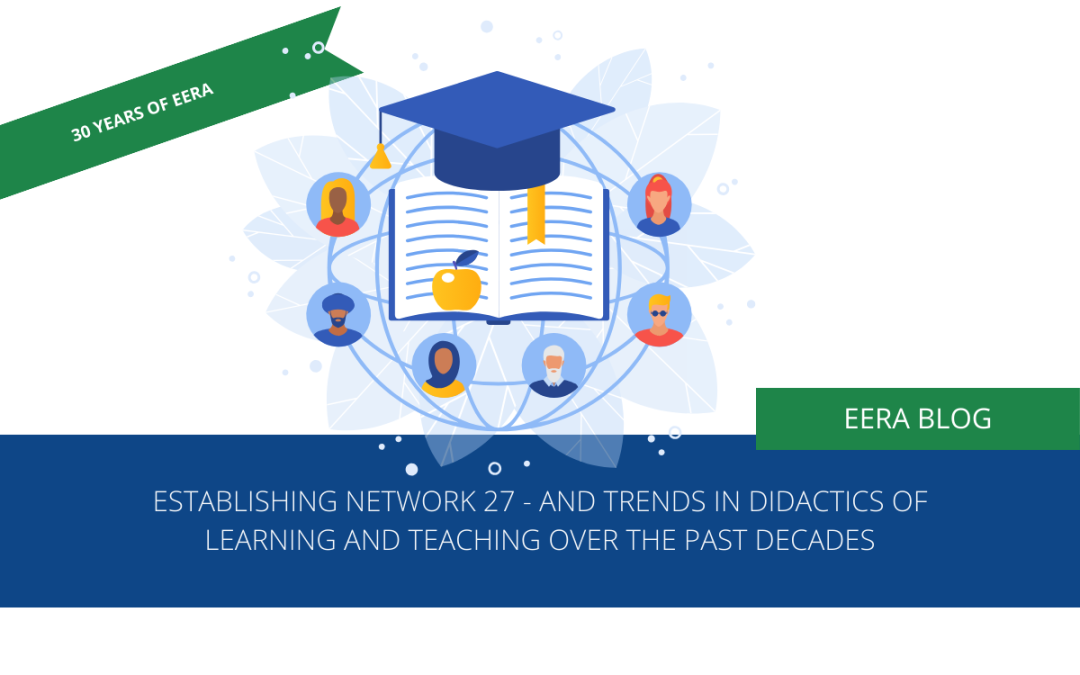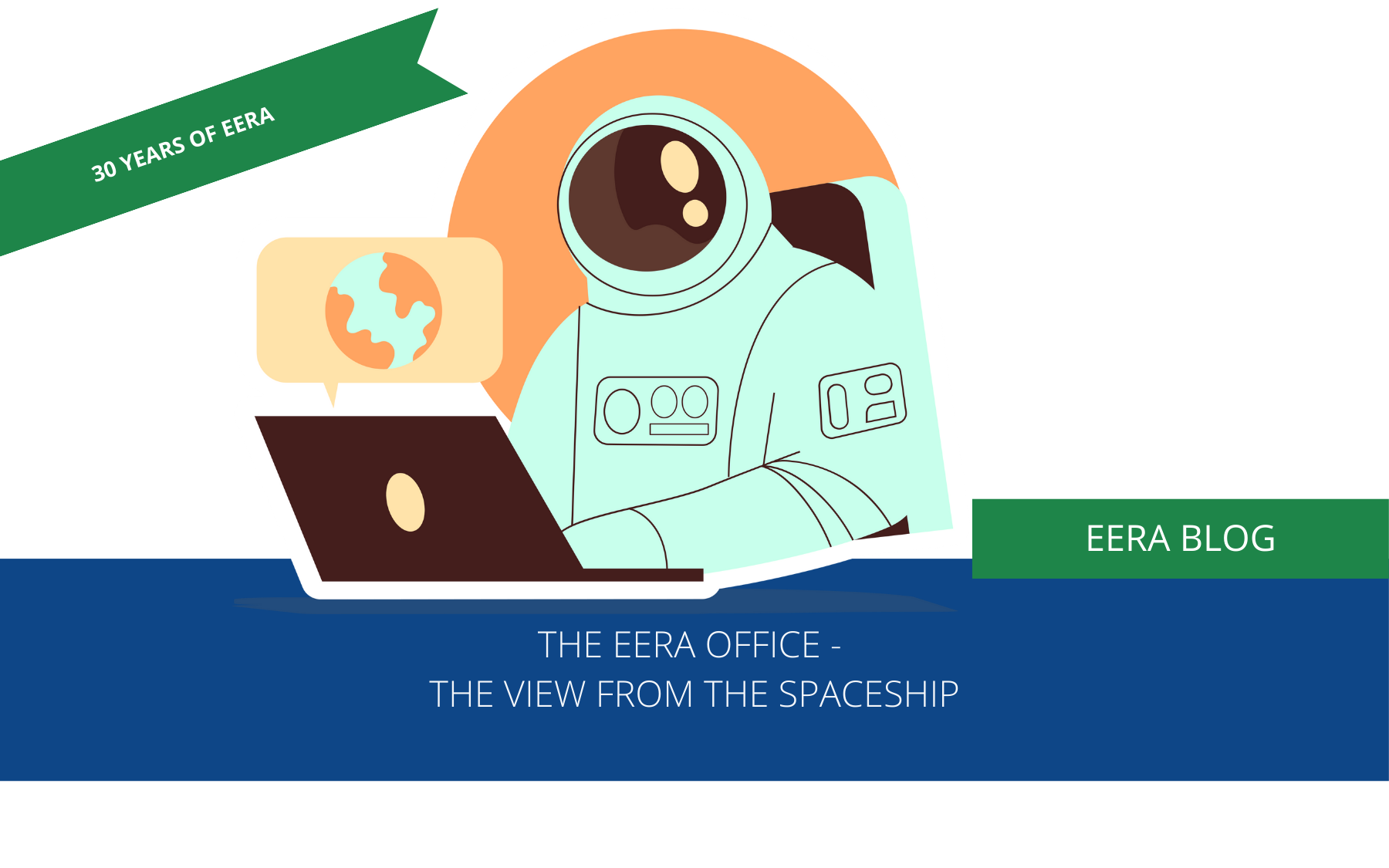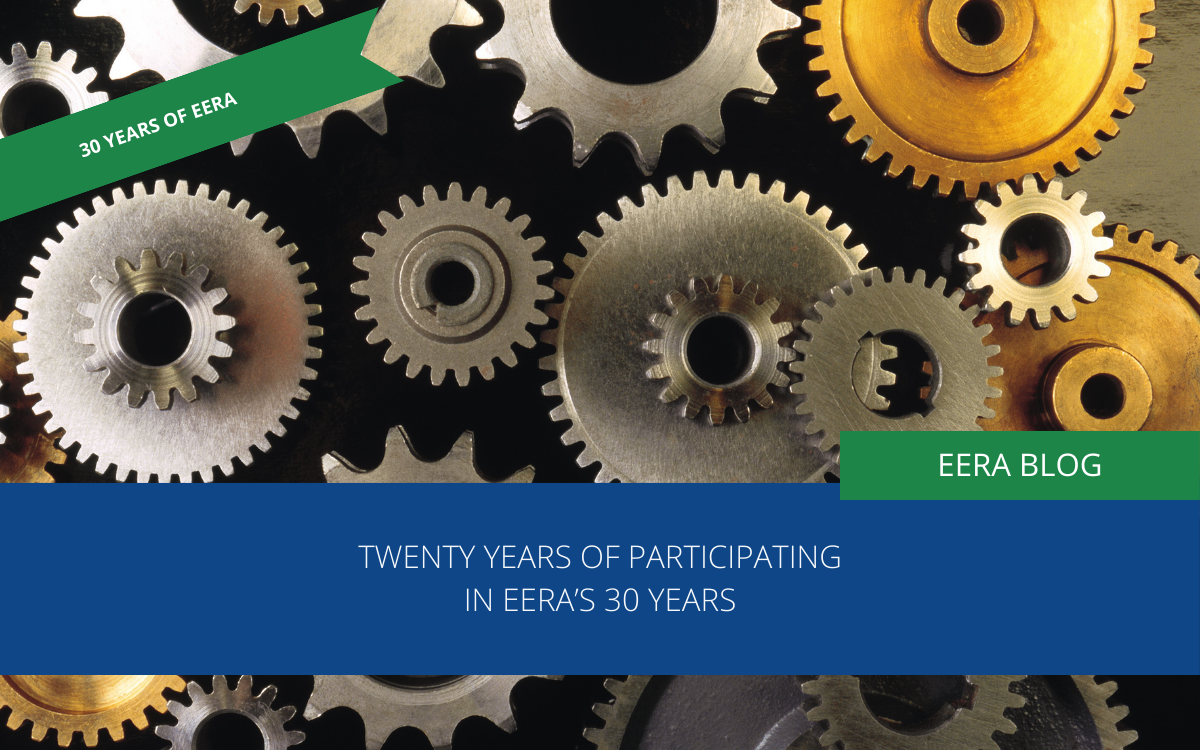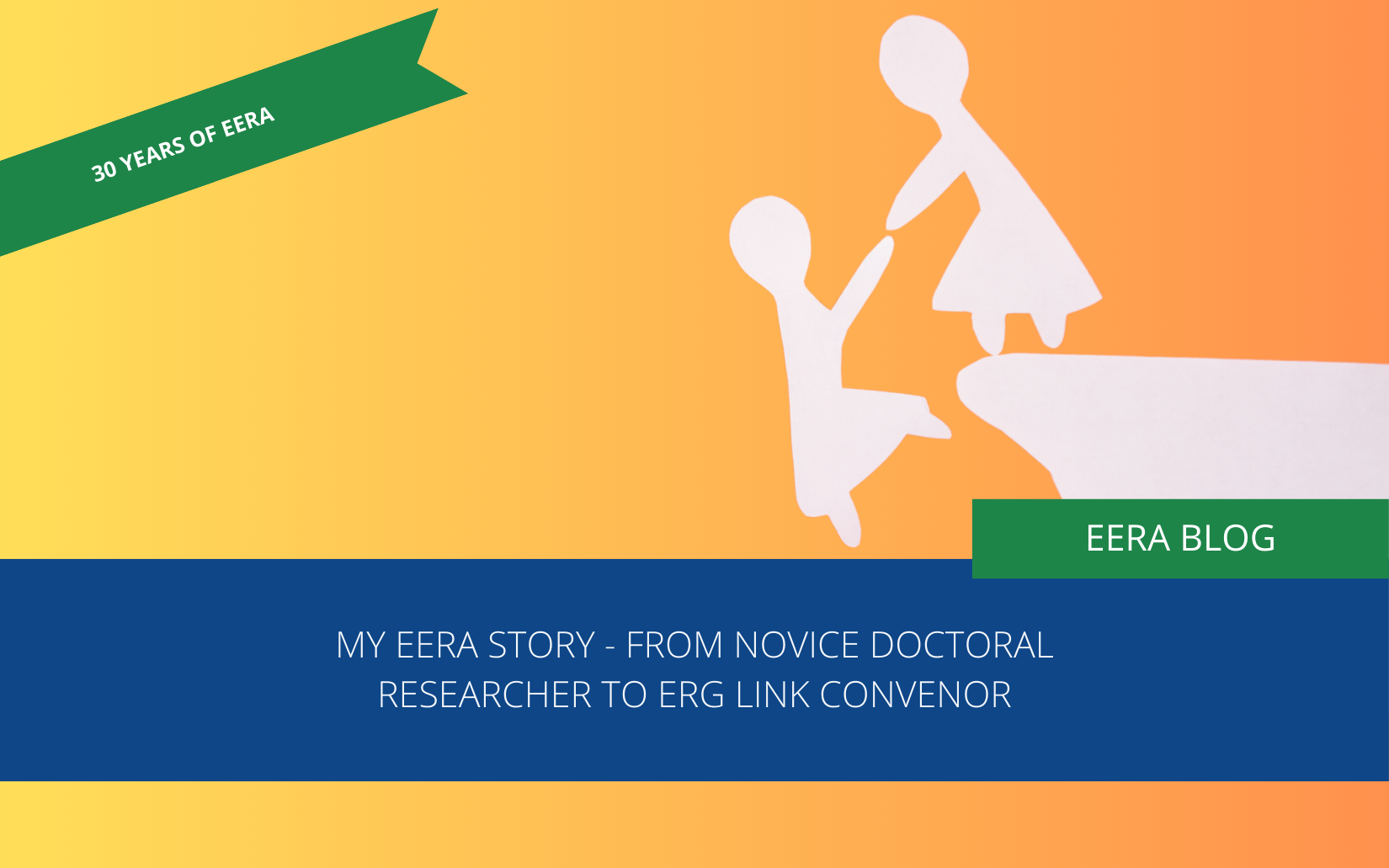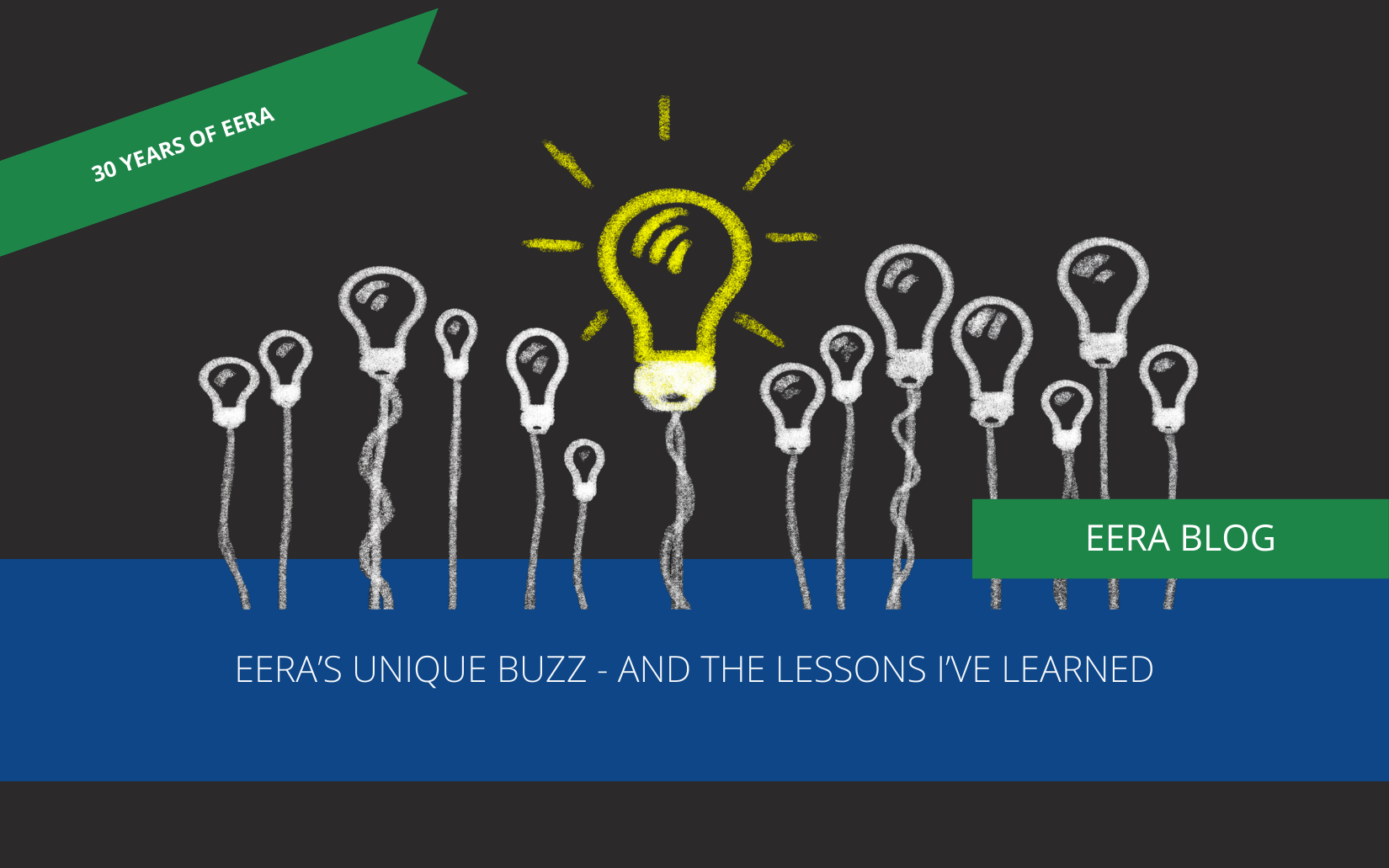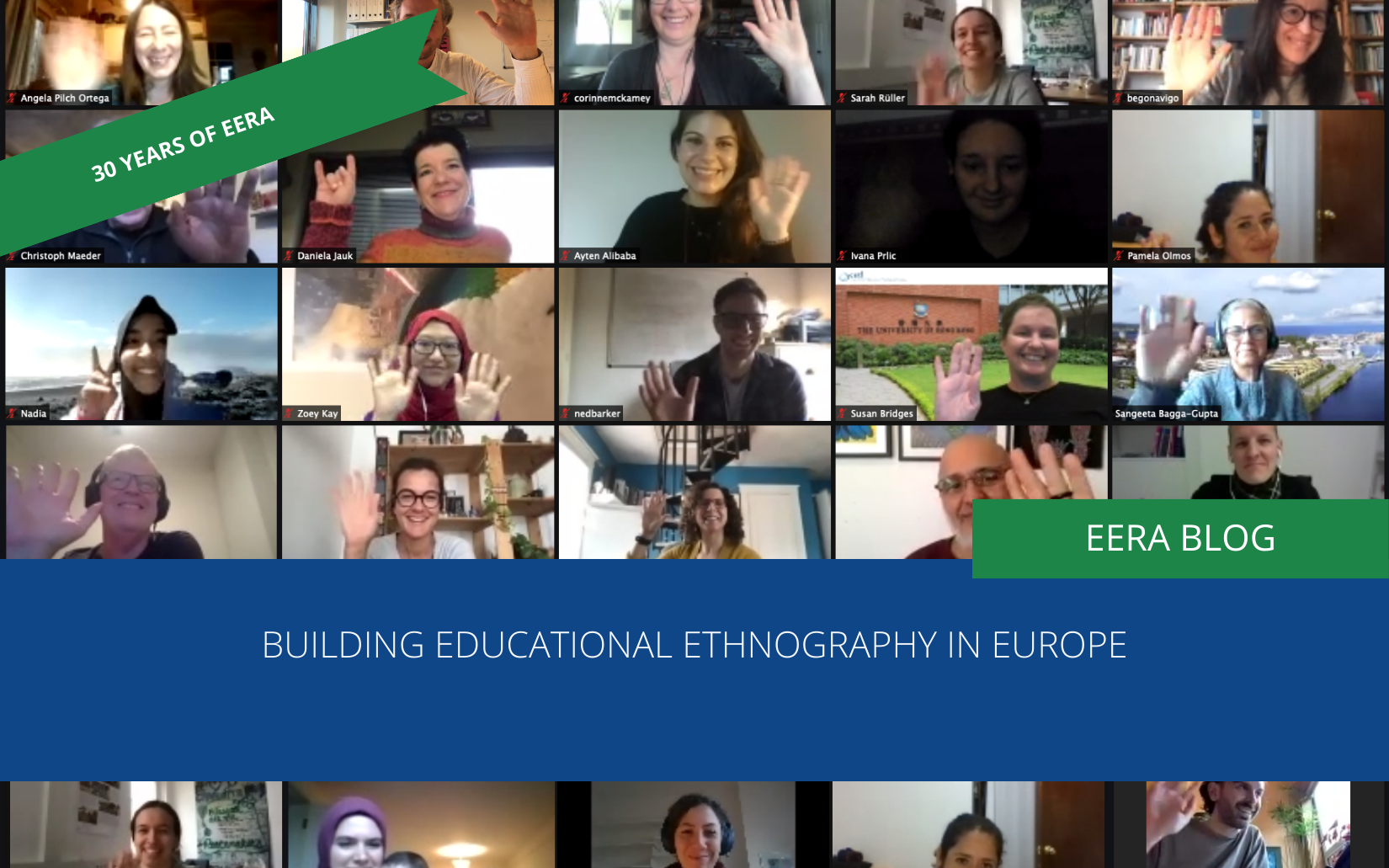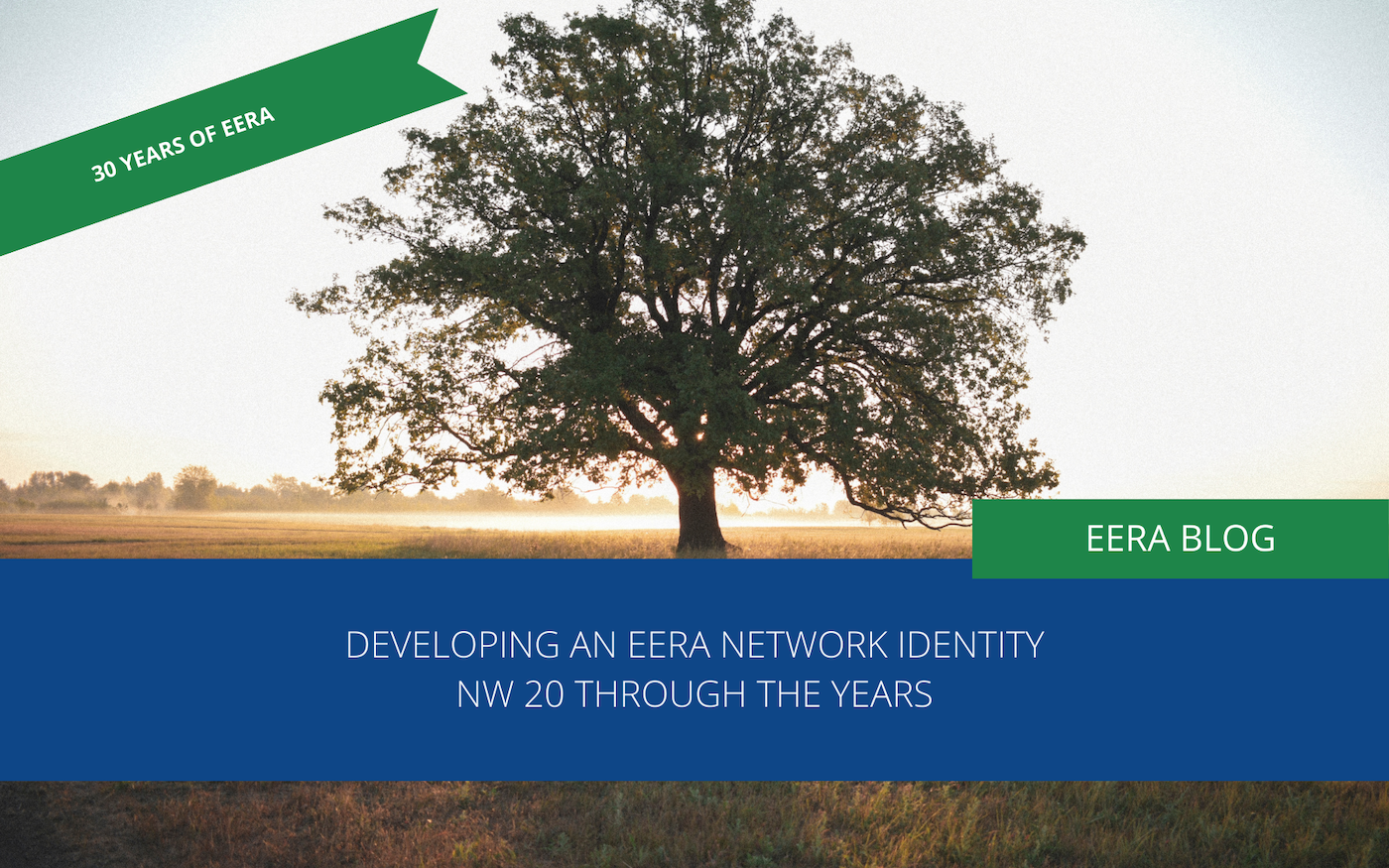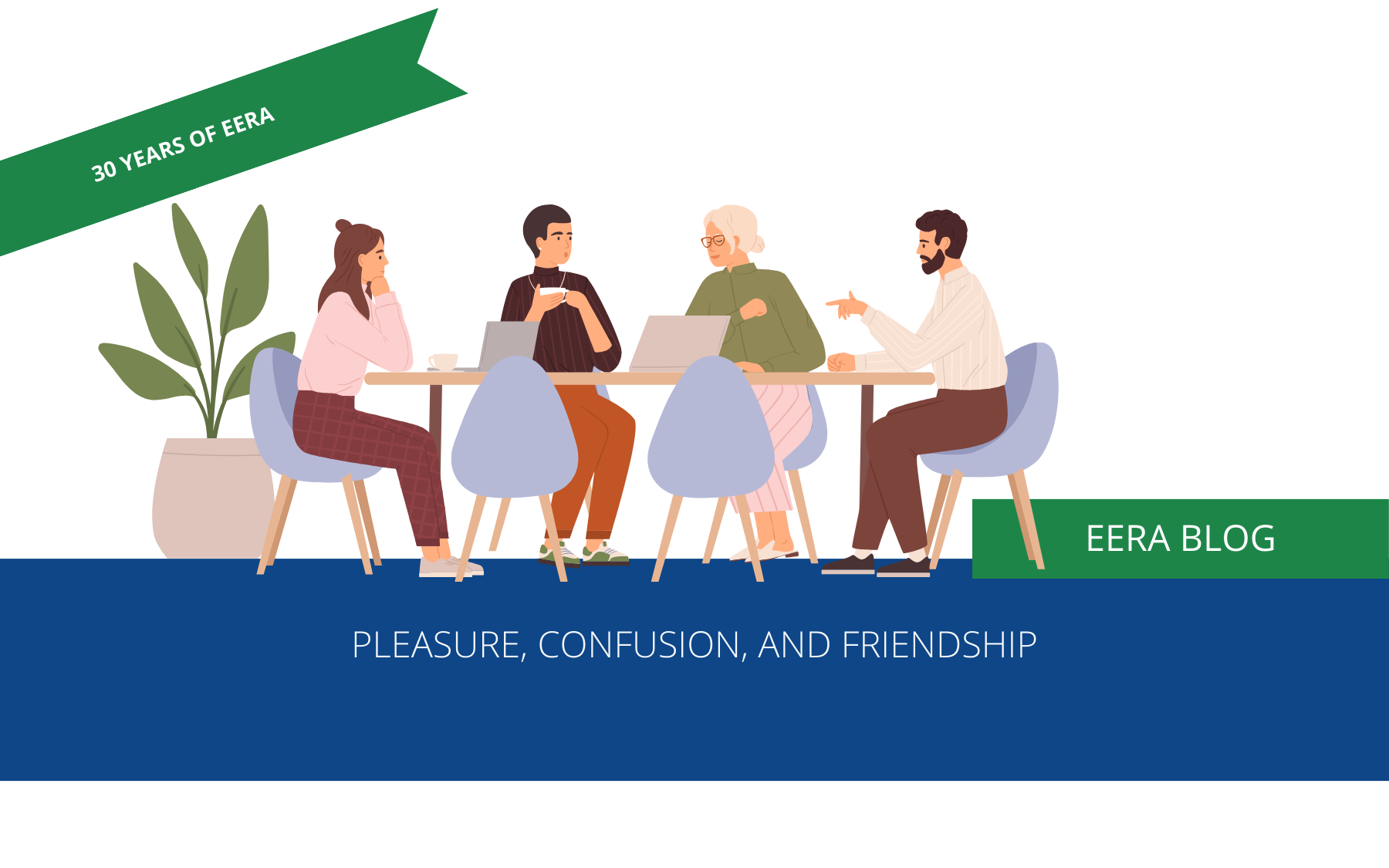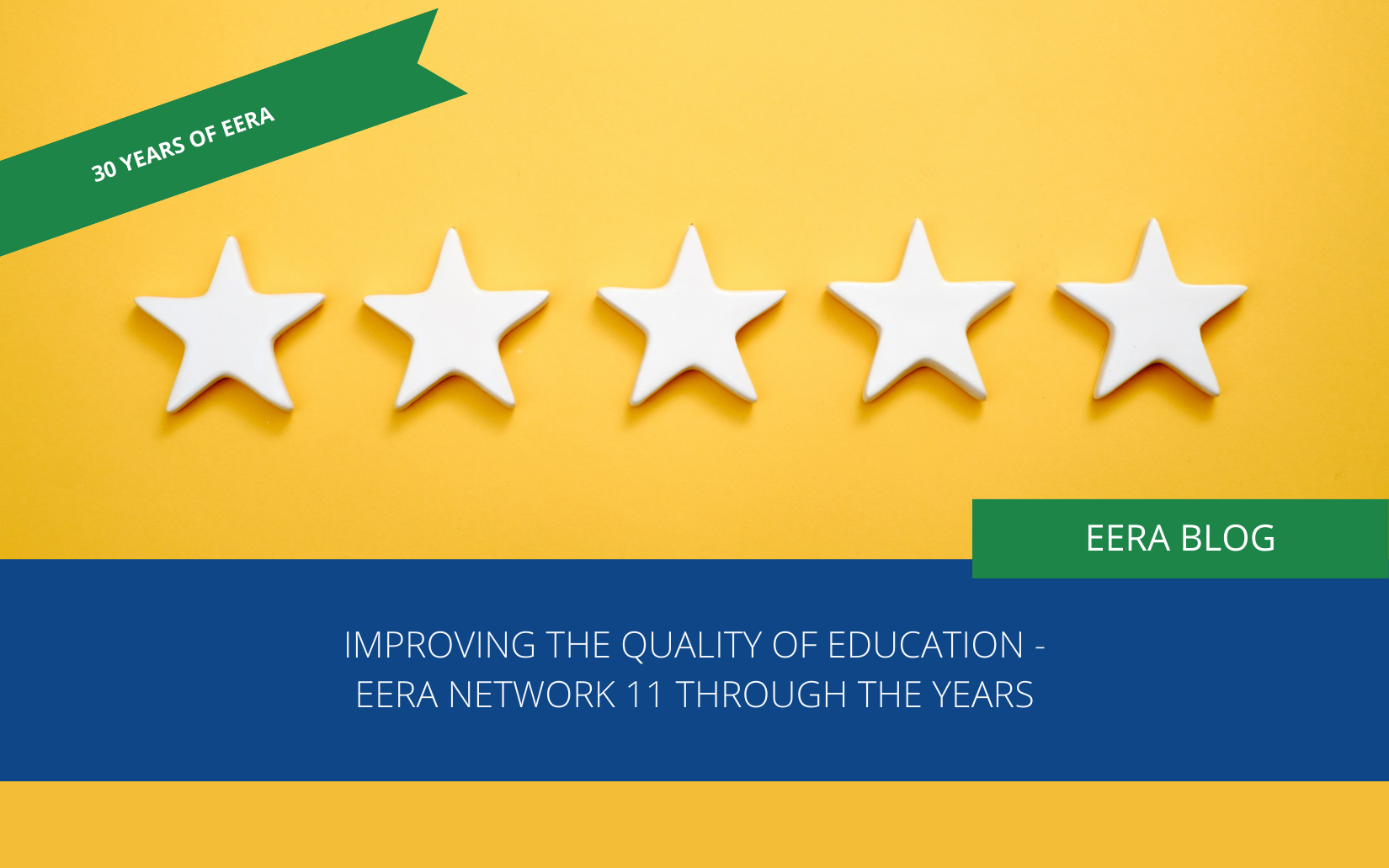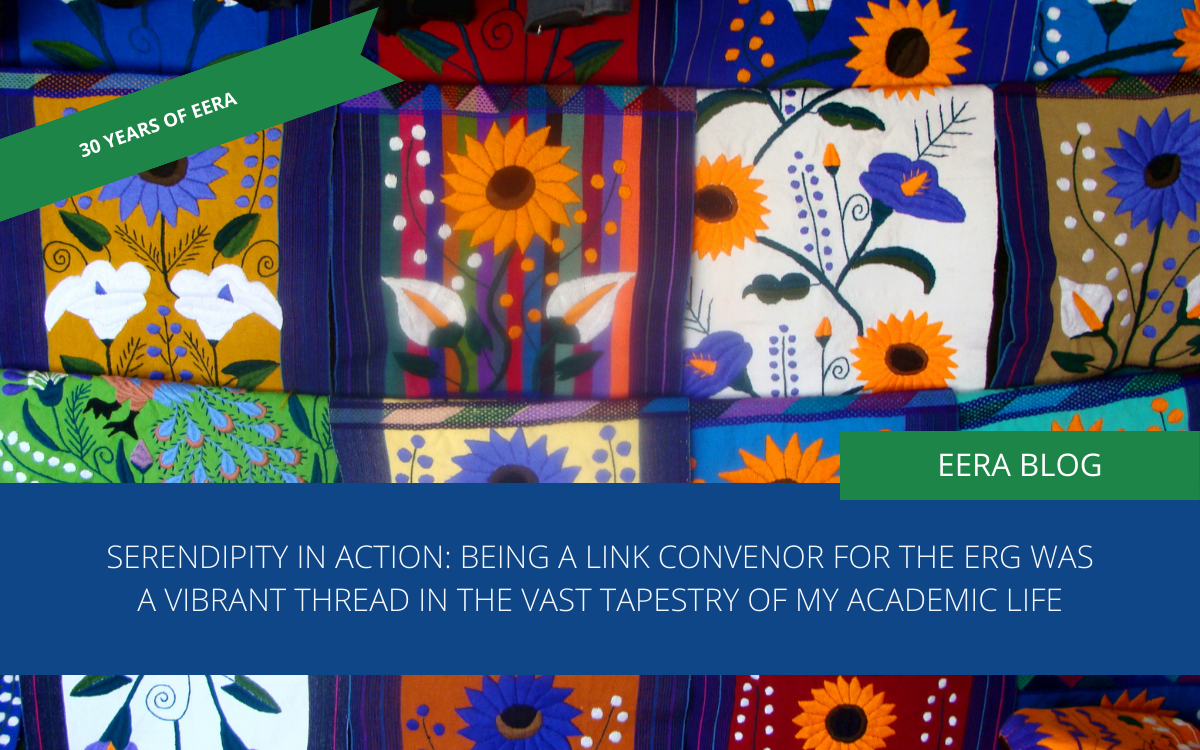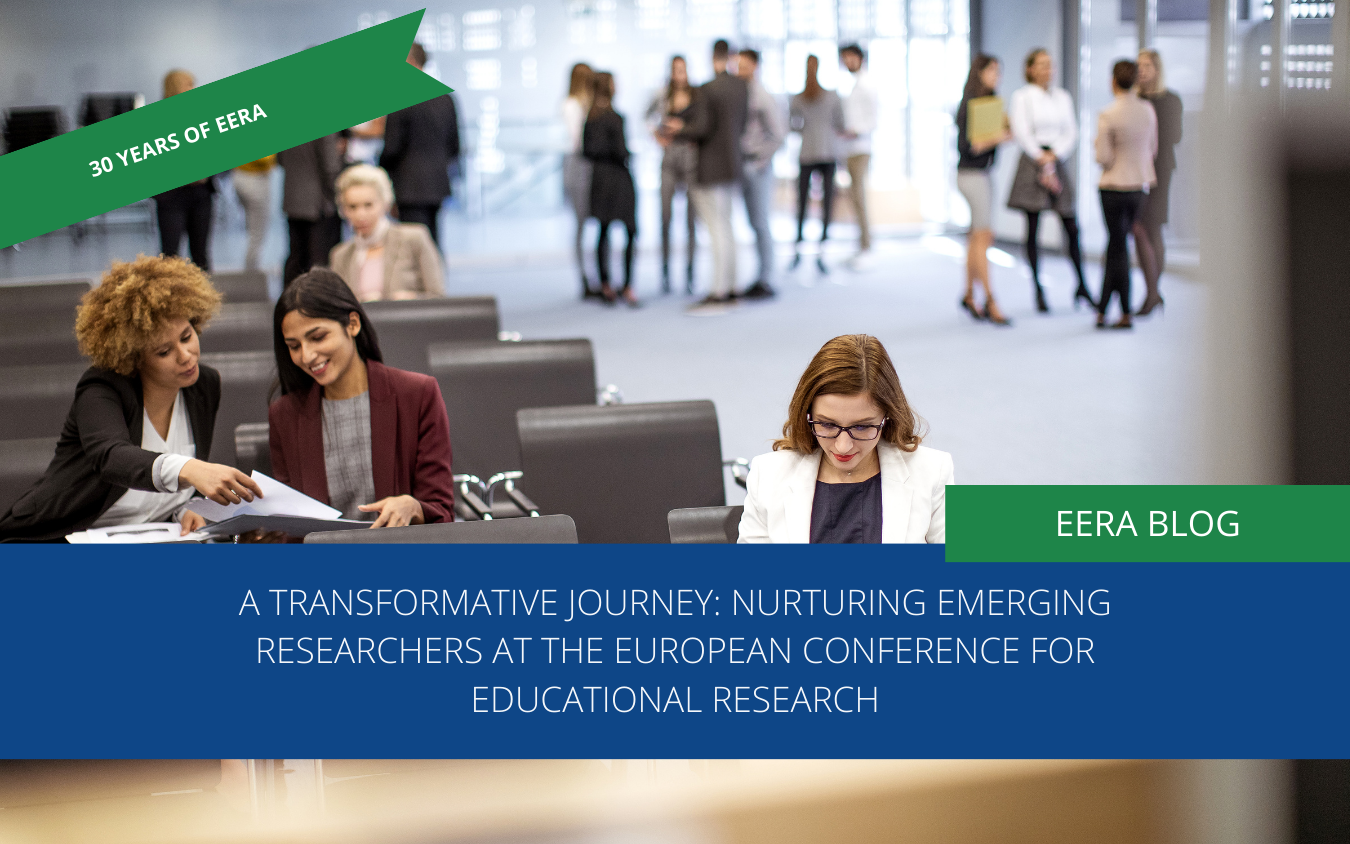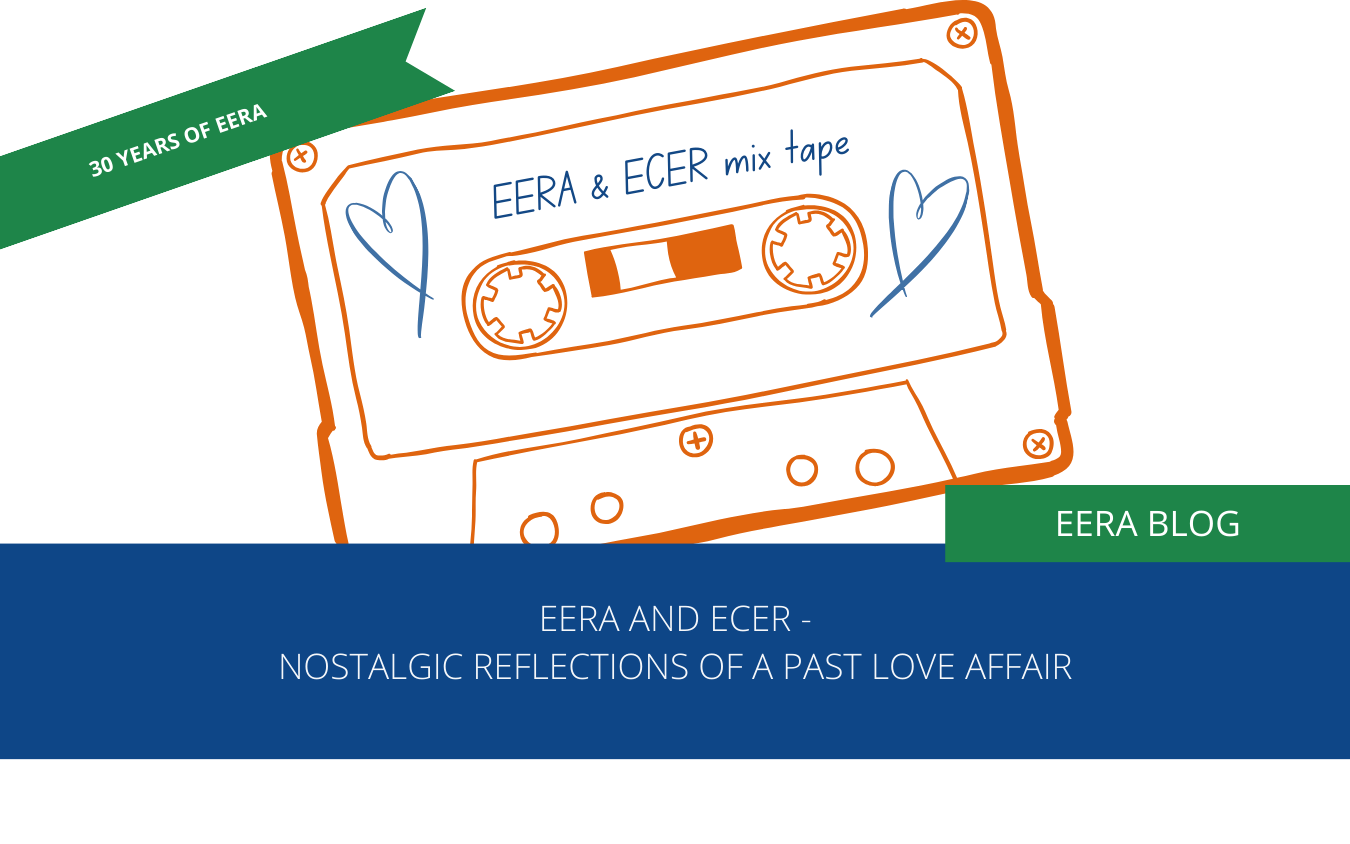EERA is celebrating 30 years in 2024, and as part of our anniversary celebrations, we have invited people who have been at the heart of the association to share their memories and reflections. In a series of blog posts, which will run throughout 2024, we will share those precious memories, from the people who helped foster the global EERA community.
In this blog post, Network 27 Honorary Member, Professor Emeritus Brian Hudson reflects on the path that led to the creation of the EERA network on Didactics – Learning and Teaching.
The EERA network on Didactics – Learning and Teaching was formally established in 2006. However, the series of developments that led to me becoming the first main convenor began several years earlier. One event of significance took place at the ECER conference in 1997 that was held at the University of Frankfurt. This was my first ECER conference during which I attended the symposium within the Teacher Education Research Network that was sponsored by the recently established Thematic Network for Teacher Education in Europe (TNTEE). The TNTEE network was co-ordinated by Umeå University and supported by the European Commission (EC) from 1996 to 1999 as part of the Socrates-Erasmus Programme (Action 1) with the aim of enhancing the European dimension of university studies. Its main objective was to establish a flexible multilingual, transnational forum for the development of teacher education in Europe by linking together as many universities and other institutions as possible. Project partners included the British Educational Research Association (BERA) and the UK Universities Council for the Education (UCET), alongside other national research associations within the European Educational Research Association (EERA).
The TNTEE network was one of several initiatives around the time of the establishment of EERA, which were promoted by the EC in the field. Prior to the Frankfurt conference I had been involved in the RIF (Réseau d’Institutions de Formation) network and particularly in subnetwork 12 The European Dimension and Environmental Education from 1994 to 1997. In their paper about teacher education and the ERASMUS programme, Delmartino and Beernaert (1998, p75) describe the way in which the RIF programme had resulted in a pool of expertise in the European dimension and education and “had a multiplier effect that … sparked off many activities in several areas of education in general and teacher education in particular.” They also emphasise the way in which the RIF had been successful not only because of the work done by coordinators and its members, but also because of the support and encouragement given by the EC DG XXII.
The organisation of the TNTEE network was similar to that of the RIF network, being arranged around several subnetworks, which included Subnetwork E entitled “Didaktik/Fachdidaktik as science (-s) of the teaching profession?”. The symposium in Frankfurt was followed by a Subnetwork E seminar in Linz in March 1998 and by a further series of meetings of the group at the TNTEE Conference in Lisbon in May 1999. The multiplier effects from these developments resulted in successful applications to the EC that was based on institutional collaboration. These included the SOCRATES Curriculum Development project: DIDAKTIK (1998-2001)and the associated DIDAKTIK Dissemination project (2001-02). A key output from this phase of development was the TNTEE publication by Hudson et al. (1999). A full discussion of all the multiplier effects arising from the TNTEE network is included in Hudson and Zgaga (2017).
A further impact from this phase of development was the symposium organised by the European Curriculum Network (ECUNET) at the ECER 2000 Conference in Edinburgh entitled “Didaktik: An International Perspective”. This was set against the background of several significant publications around that time, including “Didaktik and/or Curriculum: An International Dialogue” edited by Gundem and Hopmann (1998) and “Starting a dialogue: a beginning conversation between the Didaktik and curriculum traditions” by Hopmann and Riquarts (2000). In turn, this led to the publication (Hudson, 2002), which contributed to discussions within EERA regarding the establishment of the network on Didactics – Learning and Teaching in the following years.
EERA Dublin 2005 and Geneva 2006 – Formal establishment of Network 27
Subsequently, a working group was formed following the ECER 2003 conference in Hamburg as an initiative of the then President Ingrid Gogolin, and despite some internal resistance at the level of the EERA Council, the network on Didactics – Learning and Teaching was proposed at the Annual General Assembly of EERA in Dublin in 2005. Reflecting this resistance, the network was only given provisional approval, which was quite extraordinary. Nevertheless, the call for proposals received a strong response for the conference in Geneva in 2006. Accordingly, the network was formally established at the EERA Annual General Assembly in 2006 following a successful programme of papers and symposia. By this time, I was working as a professor in pedagogical work in the Department of Interactive Media and Learning at Umeå University. Subsequently, the papers from the Opening Symposium were published in Hudson and Schneuwly (2007).
Discussions at the network meeting during the ECER 2007 conference in Ghent focussed on the overall aims and goals of the network. These took the direction of considering the relation between general and subject-specific didactics. Questions were raised in relation to the main differences between subject-specific and general competences. This process led to a particular focus of inquiry on the generic aspects across subject-specific domains of didactics and/or research on teaching and learning. Regarding the main idea for the network, the scope as outlined on its establishment, highlighted the way in which the field of didactics and research on teaching and learning was, and still is, characterised by its fragmentation across Europe. The very diverse systems of initial teacher education and similarly diverse arrangements for the continuing professional development of teachers reflect this fragmentation. Central questions from a didactical perspective, are what is to be taught, and what is to be learned, and why? In turn, these raise questions about the role of subjects and subject didactics and, significantly, for many traditions within Europe, about the concept of Bildung. A further important question is what are the implications for teacher education in Europe? Therefore, a major task for the network was identified in terms of counteracting fragmentation and advancing research in didactics and teaching and learning as part of a wider movement to advance university-based teacher education in a European context. Subsequently, a collection of papers from the early years of the network was compiled in the publication “Beyond Fragmentation: Didactics, Learning and Teaching in Europe” (Hudson and Meyer, 2011). The book demonstrated both the need for and the success of the network in finding common ground and in advancing research in the field. Since that time, the network has continued to be an important international meeting ground for researchers in the field.
Early experiences and development of Network 27
In my role as a participant in the network during the early years, two highlights stand out. These were the symposium on “European Perspectives on Fachdidaktik” organised by Helmut Vollmer at ECER 2011 in Berlin and the symposium arranged by Brigitte Gruson on “Joint Action Theory in Didactics: Contributions to comparative didactics in Europe” at ECER 2012 in Cadiz. Both were formative in terms of my own research interests, which I continued to pursue after stepping down as the main convenor in 2012. Impulses from these events fed into subsequent EERA symposia and round tables and also into the activities of the WERA International Research Network on Didactics – Learning and Teaching from 2014 to 2018. Outputs arising directly from this period of activity have included Hudson (2022), Loquet et al. (2022) and Wegner et al. (2022).
A further phase of institutional collaboration began for me in 2017 through my work as a guest professor at Karlstad University with the ROSE research group (Research on Subject-specific Education) and especially through the KOSS network (Knowledge and Quality across Schools and Teacher Education). This has been funded by the Swedish Research Council (2019-2024) as a network in Subject Didactics (Ämnesdidaktik) within the field of Educational Sciences. The core of the network has involved research groups in subject-specific education in Sweden, Finland and England and this collaboration has stimulated wider links internationally. As a result, the network has extended its reach by inviting discussion of traditions and contemporary trends in subject didactics and subject-specific education more widely.
Outputs from the network have included books and journal articles, e.g., Hudson et al. (2022a, 2022b and 2023), and a conference on the theme “Transnational and Interdisciplinary Perspectives on Subject Didactics”, that was held at the University of Trier, Germany, in May 2024. Future plans include a symposium on the same theme (Hudson et al., 2024) as part of the WERA Focal meeting 2024 at the University of Manchester in September.
Trends in teacher education and subject didactics / subject-specific education
In reflecting on the last few decades since the establishment of EERA with my experience of working across education systems in Sweden and England in mind, I can observe two distinct trends in relation to teacher education and subject didactics/subject-specific education. These trends are the result of quite different directions of policy development in the two countries. I discuss these trends in Hudson (2024a) and the ways in which they arise from competing conceptions of both quality and professionalism and from an associated clash of values concerning the nature of higher education and its role in the professional education of teachers. This clash of conceptions can be seen in the terms used by Hoyle (1974) on a spectrum that ranges from a “restricted” technicist view to an “extended” professional view of the nature of teaching. The restricted view is based on a conception of an effective teacher that is largely defined in terms of technical skills for direct instruction and teaching as merely a craft. In contrast, a teacher at the extended end of the spectrum is seen as the kind of professional who is not only highly proficient in the classroom but is also reflective and enquiring in terms of what should be taught and why.
This tension has been a central focus of the work of Shulman (1986), who argues convincingly that what distinguishes craft from profession is the indeterminacy of rules when applied to particular cases. The professional holds knowledge, not only of how, i.e., the capacity for skilled performance, but of what and why. The teacher is seen to be in command not only of procedure but also of content and rationale, and capable of explaining why something is done. Such extended professionalism involves the capability of reflection leading to self-knowledge and “the metacognitive awareness that distinguishes draftsman from architect, bookkeeper from auditor” (ibid, p13). Furthermore, a professional is capable not only of practicing and understanding his or her craft, but also of communicating the reasons for professional decisions and actions to others. The nature of such professional knowledge for dialogic teaching and learning is discussed in Hudson et al., (2023) and Hudson (2024b) with reference to the development of Subject Specific Educational Content Knowledge (SSECK). Higher education is critical to the development of SSECK given that the didactic dimension should be understood as an integral and inseparable part of teachers’ content knowledge. Teachers develop knowledge that allows them to evaluate and decide how to act in a specific situation. In teacher education, ‘förtrogenhetskunskap’ or ‘familiarity knowledge’ can be related to Bildung, meaning that teachers’ knowledge base consists of an almost embodied specific understanding of the subject and its linked discipline(s), enabling them to transform the content knowledge and having the methods to do so.
The direction of travel in the field of teacher education in Sweden during this time has involved a strengthening of subject didactics as academic disciplines close to practice within the Educational Sciences. This process reflects an emphasis on the development of the field in terms of extended professionalism. In contrast, the direction of travel in England has been quite the opposite towards restricted professionalism, especially since 2010, which has resulted in the marginalisation of subject-specific teacher education as part of a wider crisis in the field. This wider crisis is fully documented in “Teacher Education in Crisis: The State, the Market and the Universities in England” (Ellis, 2024).
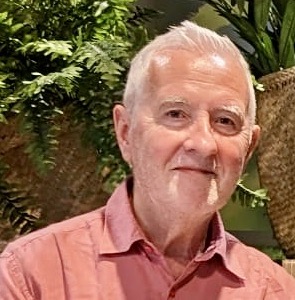
Professor Emeritus Brian Hudson
Emeritus Professor, University of Sussex, UK — Guest Professor, Karlstad University, Sweden
Brian Hudson is Emeritus Professor of Education and former Head of the School of Education and Social Work (2012-16) at the University of Sussex. He is Guest Professor in the Department of Educational Studies at Karlstad University in Sweden where he works with the ROSE research group – ‘Research On Subject-specific Education’. He is a Co-Investigator for the KOSS Network: “Knowledge and Quality across School Subjects and Teacher Education” supported through an Educational Sciences network grant (2018-03603) from the Swedish Research Council (2019-2024). The project is led by Karlstad University together with the University of Helsinki and UCL Institute of Education.
Delmartino, M. and Beernaert, Y. (1998). Teacher Education and the ERASMUS Programme. Role, Achievements, Problems and Perspectives of Teacher Education Programmes in ERASMUS. The RIF: Networking in Teacher Education. European Education, Vol. 30, Issue 3, 56-85.
Gundem, B. B. and Hopmann, S. (Eds.) (1998) Didaktik and/or Curriculum: An International Dialogue. New York: Peter Lang.
Ellis, V. (ed.) (2024) Teacher Education in Crisis: The State, the Market and the Universities in England. London: Bloomsbury Academic.
Hopmann, S and Riquarts, K. (2000) Starting a dialogue: a beginning conversation between the Didaktik and curriculum traditions. In I. Westbury, S. Hopmann and K. Riquarts (Eds.), Teaching as a Reflective Practice: The German Didaktik Tradition. Mahwah, NJ: Lawrence Erlbaum Associates, 3-11.
Hoyle, E. (2008) Changing Conceptions of Teaching as a Profession: Personal Reflections. In D. Johnson and R. Maclean (Eds.) Teaching: Professionalization, Development and Leadership. Springer, 285-304.
Hudson, B. (2024a) Why no Subject Didactics in England? In H. J. Vollmer and M. Rothgangel. General Subject Didactics. Comparative Insights into Subject Didactics as Academic Disciplines. Theoretical Foundations – Empirical Findings. Münster: Waxmann.
Hudson, B. (2024b) Professional Knowledge for Mathematics Teaching. In Rata, E. (Ed.) Research Handbook on Curriculum and Education, Edward Elgar Publishing.
Hudson, B., Olin-Scheller, C., Rothgangel M., Sensevy, G., Vollmer, H.J., Wegner, A. and Gogolin, I. (Discussant) (2024) Transnational and Interdisciplinary Perspectives on Subject Didactics, Symposium at the WERA Focal Meeting 2024, University of Manchester, 9-12 September 2024.
Hudson, B., Gericke, N., Olin-Scheller, C. and Stolare, M. (2023) Trajectories of powerful knowledge and epistemic quality: analysing the transformations from disciplines across school subjects, Journal of Curriculum Studies, Vol. 55, Issue 2, 119-137.
Hudson, B. (2022) Evaluating Epistemic Quality in Primary School Mathematics in Scotland. In B. Hudson, N. Gericke, C. Olin-Scheller and M. Stolare (Eds.) International Perspectives on Knowledge and Curriculum: Epistemic Quality across School Subjects, Bloomsbury Academic, London, 17-35. ISBN 9781350167100.
Hudson, B., Gericke, N., Olin-Scheller, C. and Stolare, M. (2022a) International Perspectives on Knowledge and Quality: Implications for Innovation in Teacher Education Policy and Practice, Bloomsbury Academic, London. ISBN 9781350178403.
Hudson, B., Gericke, N., Olin-Scheller, C. and Stolare, M. (2022b) International Perspectives on Knowledge and Curriculum: Epistemic Quality across School Subjects, Bloomsbury Academic, London. ISBN 9781350167100.
Hudson, B. and Zgaga, P. (2017) History, context and overview: Implications for teacher education policy, practice and future research. In B. Hudson (Ed.) (2017) Overcoming Fragmentation in Teacher Education Policy and Practice, Cambridge Education Research Series, Cambridge University Press, 1-25.
Hudson, B. and Meyer, M. (eds.) (2011) Beyond Fragmentation: Didactics, Learning and Teaching in Europe, Verlag Barbara Budrich, Opladen and Farmington Hills.
Hudson, B. and Schneuwly, B. (Eds.) (2007) Special Issue of the European Educational Research Journal (EERJ) on Didactics: Learning and Teaching in Europe, Vol. 6, No. 2, 2007.
Hudson, B., Buchberger, F., Kansanen, P. and Seel, H. (Eds.) (1999) Didaktik/Fachdidaktik as the Science(-s) of the Teaching Profession? Thematic Network for Teacher Education in Europe. TNTEE Publications, Vol 2, No. 1.
Hudson, B., Gericke, N., Olin-Scheller, C. and Stolare, M. (2023) Trajectories of powerful knowledge and epistemic quality: analysing the transformations from disciplines across school subjects, Journal of Curriculum Studies, Vol. 55, Issue 2, 119-137.
Hudson, B. (2002) Holding complexity and searching for meaning – teaching as reflective practice, Journal of Curriculum Studies, 34, 1, 43-57.
Loquet, M., Hudson, B. and Wegner, A. (2022) Epistemic Quality of Physical Education in a High School in France. In B. Hudson, N. Gericke, C. Olin-Scheller and M. Stolare (Eds.) International Perspectives on Knowledge and Curriculum: Epistemic Quality across School Subjects, Bloomsbury Academic, London, 37-53. ISBN 9781350167100
Shulman, L. S. (1986) Those who understand: knowledge growth in teaching, Educational Researcher, 15, 2, 4-14.
Wegner, A., Hudson, B. and Loquet, M. (2022) Epistemic Quality of Language Learning in a Primary Classroom in Germany. In B. Hudson, N. Gericke, C. Olin-Scheller and M. Stolare (Eds.) International Perspectives on Knowledge and Curriculum: Epistemic Quality across School Subjects, Bloomsbury Academic, London, 55-77. ISBN 9781350167100

